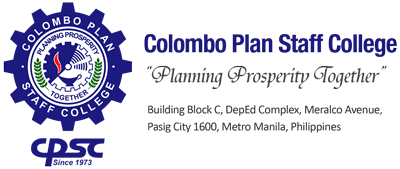
Member Since 1973
|
Partner Ministry/Organization
National Vocational & Technical Training Commission (NAVTTC)
Address of Embassy in Manila
6th Floor, Alexander House, 132 Amorsolo Street, Legaspi Village,
Makati City, Metro Manila, Philippines
Participation in Regional Programs (2018-2023)
Recent Programs Held (2018-2023)
2024:
2023:
2022:
2021:
|

Official Name
Islamic Republic of Pakistan
Land Area
881,913 km²
Country Borders
India (east)
Afghanistan (west)
China (northeast)
Iran (southwest)
Afghanistan (west)
China (northeast)
Iran (southwest)
Capital
Islamabad
Religion
Islam
Language
Urdu, English, Punjabi, Pushto, Sindhi, Saraiki, and Balochi
Demonym
Pakistani
National Holiday
14 August 1947 (Independence from the United Kingdom; Partition of India)
 Photo courtesy of brandsynario
Photo courtesy of brandsynario
No. of Years - Primary Education
8 years
No. of Years - Secondary Education
4 years
No. of Years - Tertiary Education (Bachelor's Degree)
4 years
Ministry of Supervising Education
Ministry of Federal Education and Professional Training
 Logo of National Vocational and Technical Training Commission
Logo of National Vocational and Technical Training Commission
Agency Handling TVET
National Vocational and Technical Training Commission (NAVTTC)
TVET System
Vocational courses are offered in general schools through “Agro-Technical Studies” vocational subjects that are being offered starting from grade five to grade ten. Since 2000, vocational subjects have been offered in selected secondary schools.
Meanwhile, post-secondary TVET programs are being offered in polytechnic institutions and colleges of technology, which focus on theoretical knowledge and practical skills through the workshops, factories, companies, and organizations.
In 2016, there were around 315,000 graduates annually, contributing to 5.5% of the almost 60 million large labor force. The remainder usually contribute to workers in the informal sector (about 74% of the total labor force), which is unregulated and features poor remuneration.
Meanwhile, post-secondary TVET programs are being offered in polytechnic institutions and colleges of technology, which focus on theoretical knowledge and practical skills through the workshops, factories, companies, and organizations.
In 2016, there were around 315,000 graduates annually, contributing to 5.5% of the almost 60 million large labor force. The remainder usually contribute to workers in the informal sector (about 74% of the total labor force), which is unregulated and features poor remuneration.
Qualification Framework
The National Vocational Qualification Framework (NVQF) provides a distinct pathway for Technical and Vocational Education and Training within the overall national qualification structure. NVQF pre-vocational levels were designed to meet the basic TVET entry needs of the majority of the population with little or no schooling, and five levels (Level 1 to 5 from certificate to diploma) to provide a clear pathway in TVET and entry into Higher Education degree levels.
The NVQF also defines the skills required for a qualification and determines the equivalence within TVET Sector, allows standardized vocational qualification, provides framework for quality assurance, vertical and horizontal progression for learners, recognition of national and international qualification systems, improvement in quality of training, and increased options for learners in selecting training programs.
The NVQF also defines the skills required for a qualification and determines the equivalence within TVET Sector, allows standardized vocational qualification, provides framework for quality assurance, vertical and horizontal progression for learners, recognition of national and international qualification systems, improvement in quality of training, and increased options for learners in selecting training programs.
Level of NVQS
 Source: Figure from National Vocational Qualification Framework and Certification of Pakistan, by Soomro, National Vocational Qualification Systems of CPSC Member Countries 2017, CPSC.
Source: Figure from National Vocational Qualification Framework and Certification of Pakistan, by Soomro, National Vocational Qualification Systems of CPSC Member Countries 2017, CPSC.
TVET Financing
TVET in Pakistan is funded through budget allocations. Additional funding sources are required to fully cover the needs in consideration of the introduction of a training levy paid by employers.
 Palm Oil, Import in Pakistan
Palm Oil, Import in Pakistan
Photo courtesy of The Express Tribune
GDP
2.5% (2023)
Source: International Monetary Fund
Source: International Monetary Fund
Currency
Pakistani Rupee (PKR)
Major Exports
House Linens ($4.63B)
Rice ($2.26B)
Non-Knit Men's Suits ($2.03B)
Knit Sweaters ($1.5B)\
Non-Knit Women's Suits ($1.37B)
Rice ($2.26B)
Non-Knit Men's Suits ($2.03B)
Knit Sweaters ($1.5B)\
Non-Knit Women's Suits ($1.37B)
Major Imports
Refined Petroleum ($6.58B)
Petroleum Gas ($6.41B)
Crude Petroleum ($3.53B)
Palm Oil ($3.36B)
Vaccines, blood, antisera, toxins and cultures ($3.06B)
Petroleum Gas ($6.41B)
Crude Petroleum ($3.53B)
Palm Oil ($3.36B)
Vaccines, blood, antisera, toxins and cultures ($3.06B)
Major Export Partners
United States ($5.51B)
China ($3.25B)
Germany ($2.53B)
United Kingdom ($2.21B)
United Arab Emirates ($1.28B)
China ($3.25B)
Germany ($2.53B)
United Kingdom ($2.21B)
United Arab Emirates ($1.28B)
Major Import Partners
China ($23.5B)
United Arab Emirates ($7.13B)
Qatar ($4.8B)
Indonesia ($4.05B)
United States ($3.51B)
United Arab Emirates ($7.13B)
Qatar ($4.8B)
Indonesia ($4.05B)
United States ($3.51B)
 H.E. Arif-ur-Rehman Alvi, President of Pakistan
H.E. Arif-ur-Rehman Alvi, President of Pakistan
Photo courtesy of The Express Tribune
Type of Government
Federal Parliamentary Constitutional Republic
Head of State
Arif-ur-Rehman Alvi
Outgoing President of Pakistan
Outgoing President of Pakistan
Head of Government
Shehbaz Sharif
Prime Minister
Prime Minister
Branches of Government
The Executive
The Legislative
The Judiciary
The Legislative
The Judiciary
 Kashmir Solidarity Day in Pakistan
Kashmir Solidarity Day in Pakistan
Photo courtesy of Daily Sabah
Literacy Rate
58% (2019)
Country Code
+92
ISO Code
PAK
Internet TLD
.pk
Other Important Holidays
Kashmir Solidarity Day (February 5)
Pakistan Day (March 23)
Labor Day (May 1)
Milad un-Nabi (Every September)
Pakistan Day (March 23)
Labor Day (May 1)
Milad un-Nabi (Every September)
References
- https://clearglobal.org/resources/language-data-for-pakistan/
- https://www.scholaro.com/db/Countries/Pakistan/Education-System
- https://unevoc.unesco.org/wtdb/worldtvetdatabase_pak_en.pdf
- https://oec.world/en/profile/country/pak
- https://www.aljazeera.com/news/2024/3/3/shehbaz-sharif-set-to-become-pakistans-new-pm-after-controversial-election
- https://data.worldbank.org/indicator/SE.ADT.LITR.ZS?locations=PK
- https://publicholidays.pk/2024-dates/







